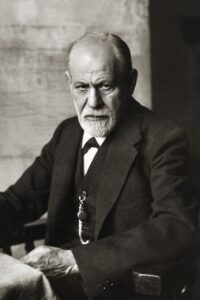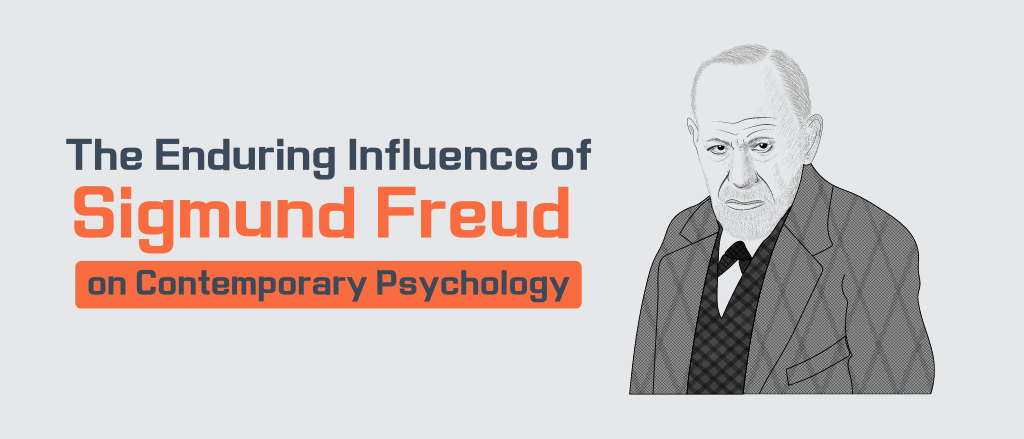Introduction

Sigmund Freud’s name is virtually synonymous with psychology, yet as one delves deeper into the field, Freud’s presence appears sporadic. This extensive article seeks to unravel the intricacies behind this phenomenon and shed light on the multifaceted relationship between contemporary psychology and Sigmund Freud.
Freud’s Background: Psychiatrist, Not Psychologist
Sigmund Freud, despite his groundbreaking work in unraveling the human mind’s complexities, lacked formal training as a psychologist. His career began in neurology but pivoted toward psychiatry when he encountered patients with conditions defying simple neurological explanations. This distinction is pivotal because psychologists, grounded in social and human sciences, often delve into the transition from normal to abnormal psychology. Psychiatrists, on the other hand, drawing from natural sciences, often view mental disorders as akin to physical illnesses. This fundamental difference has led to recurrent disagreements between the two professions, eventually diminishing Freud’s prominence within contemporary psychology.
The Boundaries of Scientific Proof
Modern psychology places immense importance on scientific rigor and empirical evidence. Freud’s psychoanalytic theory, however, delved into the enigmatic realms of the unconscious mind and frequently explored concepts that proved challenging to empirically validate. Many psychoanalytic notions, including the id, ego, superego, and the significance of the unconscious, resist straightforward empirical measurement. This divergence from empirical science has caused Freud’s theories to be regarded as less compatible with the prevailing scientific framework of psychology.
Cultural and Educational Influences
Divergent academic traditions between Europe and the United States have profoundly influenced Freud’s standing within the field of psychology. European scholarship tends to emphasize philosophy and speculation, aligning with Freud’s introspective and symbol-laden approach. In contrast, American scholarship leans more towards practicality and empirical research. Additionally, the pervasive influence of American culture on education and academia has further marginalized Freud’s ideas in the American context.
Freud’s Legacy
Despite his diminished prominence in contemporary psychology, Freud’s legacy endures. His ideas continue to exert influence over psychotherapy and specific facets of modern psychology, particularly in comprehending the enigmatic realms of the unconscious mind and the enduring impact of early childhood experiences. It is essential to recognize that Freud’s contributions, while no longer dominating the field as they once did, still hold relevance in deciphering the complexities of human behavior and cognition.
Contemporary Reinterpretations of Freud
In recent years, there has been a resurgence of interest in Freudian concepts within psychology, albeit in a modified form. Contemporary psychologists have reinterpreted Freud’s ideas, often integrating them with newer psychological theories. For instance, the psychodynamic approach, which has its roots in Freudian thinking, has been adapted and evolved to align more closely with contemporary empirical research. This resurgence suggests that while Freud’s work may not be at the forefront of psychology, its core concepts remain fertile ground for exploration and adaptation.
Freud’s Influence on Psychotherapy
One of Freud’s most enduring contributions lies in the realm of psychotherapy. His pioneering work in developing psychoanalysis laid the foundation for many modern therapeutic techniques. Concepts like free association, transference, and the exploration of unconscious conflicts remain integral to various forms of psychotherapy, including psychodynamic therapy. While contemporary psychotherapy has evolved and incorporated a range of approaches, Freud’s influence on the therapeutic process endures, underscoring the lasting impact of his ideas on mental health treatment.
Freud’s Impact on Dream Analysis
Another area where Freud’s influence persists is in the interpretation of dreams. Freud’s groundbreaking work on dream analysis and the concept of the unconscious mind’s symbolic language continues to shape how psychologists and therapists understand the significance of dreams in understanding the psyche. While contemporary dream analysis may incorporate elements of cognitive psychology and neurobiology, Freud’s foundational ideas regarding the interpretation of dreams as windows into the unconscious mind remain relevant.
Challenges to Freud’s Legacy
Despite Freud’s enduring influence, it is important to acknowledge the criticisms and challenges his work has faced over the years. Some critics argue that Freud’s theories lack empirical support and that his methods, such as free association and dream analysis, are subjective and difficult to validate scientifically. Additionally, Freud’s focus on sexuality and his sometimes controversial ideas have been points of contention within the field of psychology. These challenges have contributed to Freud’s diminished prominence in contemporary psychology.
Conclusion
The intricate relationship between psychology and Sigmund Freud is shaped by various factors, including professional background, scientific methodology, and cultural distinctions. While Freud’s prominence in contemporary psychology has waned, his enduring legacy persists in numerous facets of the field. Understanding these dynamics enriches our appreciation of the ever-evolving nature of psychological science and the enduring influence of one of its foundational figures.Sigmund Freud

